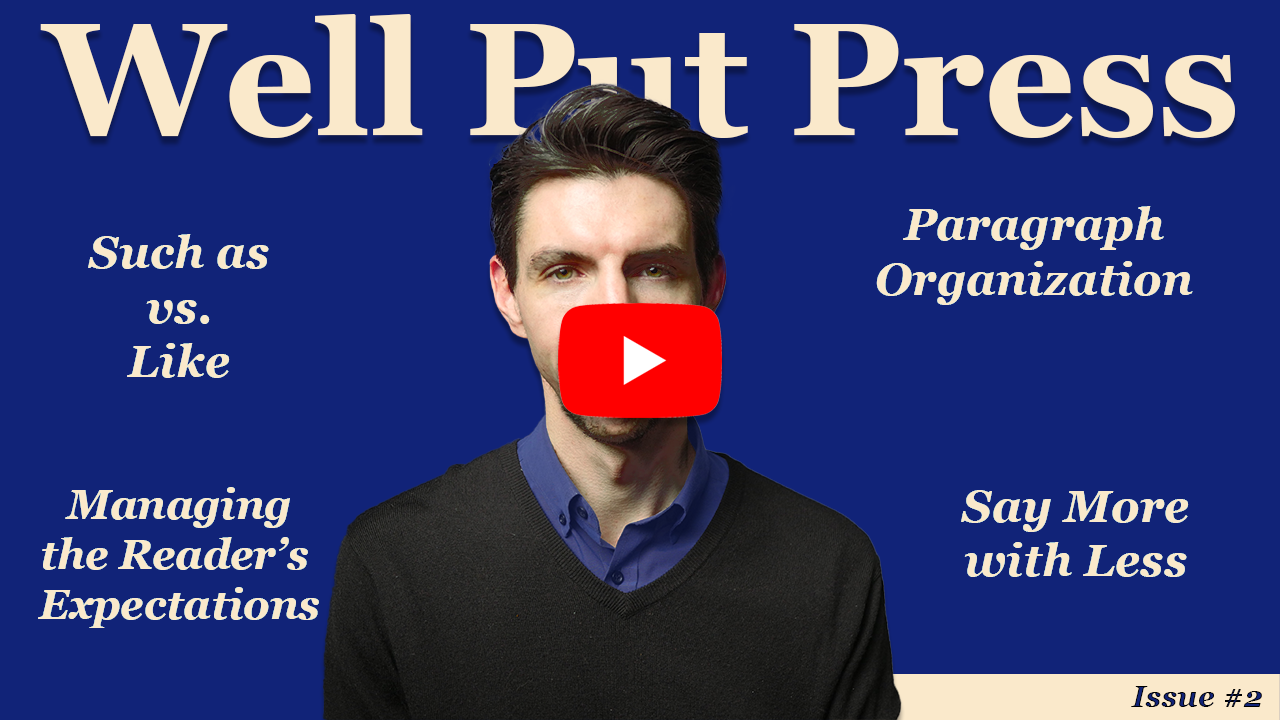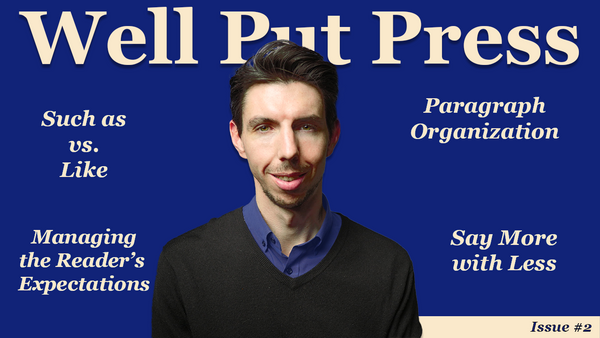The purpose of academic, according to one popular EFL textbook, is "to inform, to persuade, or to entertain." This misses the mark entierly.
Academic writing is knowledge creation, which is a group process among peers in a certain intellectual field. The members of this group are not sitting around 'entertaining' each other; they are arguing about the solution to a current problem of some importance.
Academic writing means, above all, entering that conversation.
💬 In this week’s issue:
- They Say / I Say. This phrase captures the single most important rhetorical move in academic writing. For your writing to be valuable, it must be brought into conversation with the ideas of others in your field.
- Much ado about ChatGPT. Five weeks ago OpenAI released a chatbot that can write an essay in under 10 seconds. Teachers are worried.
- Less is more. You don't need 3 sentences to express a single idea. Flaubert put it best: "Sentences must stir in a book like leaves in a forest, each distinct from each despite their resemblance."
🗣️ Entering the Conversation

Teachers of academic writing tend to place too much emphasis on grammar and mechanics, as though academic writing is just a matter of saying simple things in complex language.
— Noah Smith 🐇🇺🇦 (@Noahpinion) November 26, 2022
Academic writing: get utilized to it.
The reason I love the book They Say, I Say: The Moves That Matter in Academic Writing is that it flips this approach on its head.
Moving our attention away from language forms to the functions of academic writing, this book–written by Gerald Graff, the former head of the Modern Languages Association and professor of English at the University of Chicago–emphasizes the importance of not only expressing your ideas ("I say") but of presenting those ideas as a response to some other person or group ("they say").
"The best academic writing," according to Graff...
...has one underlying feature: it is deeply engaged in some way with other people's views. Too often, however, academic writing is taught as a process of saying "true" or "smart" things in a vacuum, as if it were possible to argue effectively without being in conversation with someone else.
Check out my full review of They Say, I Say→
A few key points:
- "Why are you telling me this?" If you fail to identify the views that you're responding to, your own argument won't have a point. For your writing to be valuable, it needs to attempt to solve a problem. (The word 'essay' derives from the French word for 'to try, attempt.')
- 'State Your Own Ideas As a Response to Others: A fact means very little on its own. The best way of identifying the value of your writing is by summarizing what others say and then using it to set up your point.
- Who Are "They?": When you identify a "they" - that is, the people to whom your writing responds - you let the reader know which conversation you're entering into. This might be someone with whom the reader agrees or disagrees. "The important thing," notes Graff et al., "is that the 'they'... represent some wider group with which readers might identify."
For a full overview, check out my review of They Say, I Say→
🧑💻 Latest Writing Tips
- The worst opening lines for essays (according to professors).
- Guidelines & guidance for science writers from Carl Zimmer, author of 14 popular science books and professor at Yale University.
- Five weeks ago, OpenAI released ChatGPT, an impressive chatbot capable of producing everything from from poetry to high school term papers. Teachers have been worried.
- Now there's an app to detect whether an essay was written by ChatGPT. (That means AI is both writing the essays and reading them.)
- There are better ways to detect AI-based plagiarism, however. I Graded an Essay Written by AI.
🧑🏫 Writing Tutorial

In this week's writing tutorial I provide feedback on a short paper about digital marketing submitted by an intermediate EFL learner.
Fortunately, this paper doesn't feature many grammatical mistakes, which allows us to dive into a few common issues about logical development and flow.
Watch the Writing Tutorial→
A few key points:
- The Uneven-U. A helpful model for paragraph organization originally presented in Eric Hayot's The Elements of Academic Style: Writing for the Humanities
- Reader Expectations. The topic sentence makes a promise to the reader about the ideas that will follow. Make sure the rest of the paragraph delivers on that promise.
- Information such as... One of the hardest aspects of English is the concept of uncountability: the idea that you can count things like reports and newspapers but not research and news. Because there are no individual instances of uncountable nouns, it doesn't make sense to provide examples of them with like or such as.
For a full overview, check out the full video →
💬 Well Put
The last words in a sentence linger briefly in short-term memory to help the reader see the connection between two successive sentences.
In the biz we call it "the stress position" – the information at the end of the sentence receives the emphasis. One principle of effective writing style is to make this stressed information link up with that in the beginning of the subsequent sentence.
This pattern of information organization, in which new information is introduced at the end of a sentence and mentioned/given information is placed at the front, is known as the given→new contract and, as cognitive scientist Steven Pinker explains, it helps the reader integrate new information.
It's good cognitive psychology: people learn by integrating new information into their existing web of knowledge. They don't like it when a fact is hurled at them from out of the blue and they have to keep it levitating in short-term memory until they find a relevant background to embed it in a few moments later.
Quotes resurfaced via ReadWise.
❓ Question for You
How do you incorporate your second language learning into your daily life outside of the classroom? #EFL #university
— William James (@WJ_RoK) January 7, 2023
Tweet at me to join the conversation!
❣️ Enjoying this Newsletter?
Forward to a friend and let them know where they can subscribe (hint: it’s here→).
Anything else? Hit reply to send me feedback, or just say hello.
